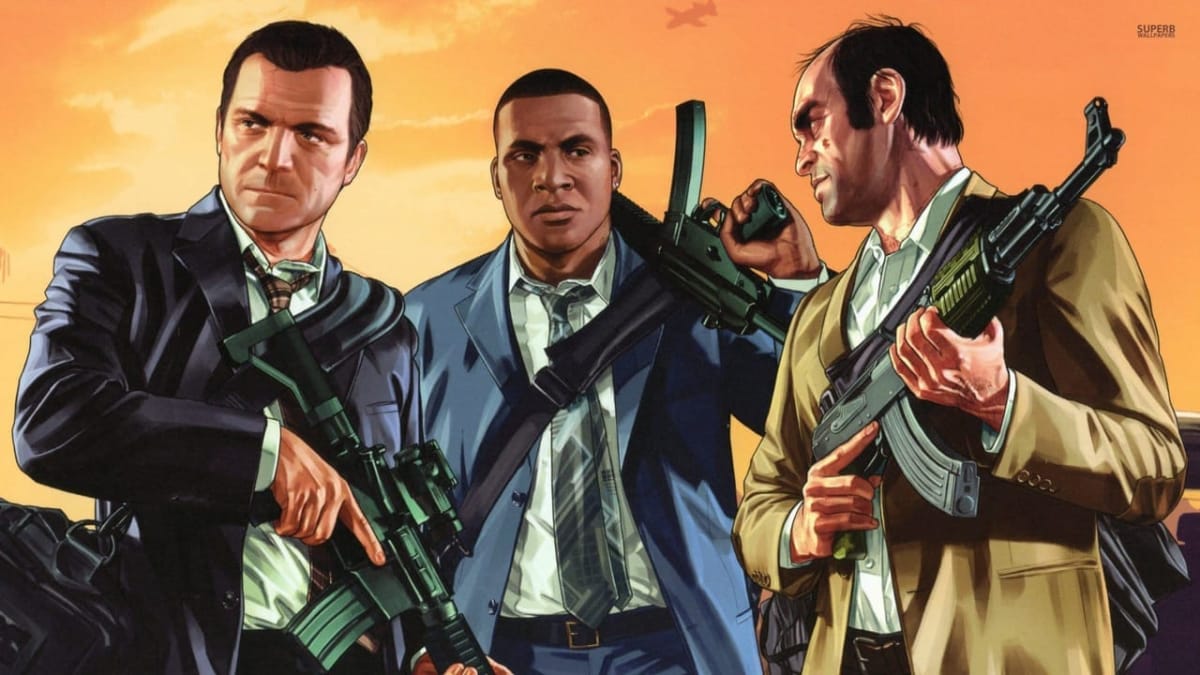In the aftermath of any modern tragedy involving a mass shooting, it appears as though it is an inevitability that at one point or another someone will ponder whether or not video games had a role in contributing to the violence. After all, games are an interactive medium of entertainment, which means that whenever a playable character does something violent in a game, you are effectively the person who tells that character to do something violent. In movies and books, the characters that do such things are detached from the audience, and thus you are free to judge these characters as if they were someone you just met because it is their finger on the trigger, their hand on a spear, their hand leading their enemies' to doom. Games like Grand Theft Auto don't have this layer of detachment, or at least not to the same degree, hence why it is always easy to claim that games are conditioning people to be violent.
For those that know their history, this is not the first time that games have been publicly examined after a mass shooting. Disbarred attorney Jack Thompson famously launched a legal crusade against video games during his career, going so far as to claim that "nobody shoots anybody in the face unless you're a hit man or a video gamer." For what it's worth, video games are a rather frightening medium for those who do not understand it, as no other form of entertainment puts you in the shoes of the protagonist, and many video game protagonists just happen to be very proficient at violence. It would thus be easy to say that games condition people to be killers, sexists, and generally unpleasant individuals seeing as how at least one game franchise, Grand Theft Auto, or GTA for short, is known for giving you the chance to play as gangsters and whatnot. Such attitudes have generally ceased to exist in this modern age where every single phone is capable of playing games, but that still doesn't prevent people from saying that violent games begets real violence.
For example, a study was published in 2012 more or less claiming that people who played violent video games became more proficient at shooting things in real life. By the end of that year, Mass Effect, StarCraft, Call of Duty, and oddly enough, Dance Dance Revolution were popularly cited as contributing factors to a school shooting. That study has since been retracted. A year later, GTA V was criticized for including a mission where the main character has to torture someone. Evidently, the idea that games are just another form of entertainment has not sunk in quite as much as one would assume, and it may be a while before the notion that games have some drastic effect on personal behavior fades into the past.
Fortunately, there have been a growing number of proponents that claim that there is no practical link between games and real life violence. Whitney DeCamp and Christopher Ferguson point out that the way that a child is raised has a far greater impact on youth, and that if there were a correlation between aggressive behavior and video games, such a relationship is tenuous at best. A study by Indiana University also found that low-skilled players perceived violence in games more than their higher skilled peers, but it was essentially only because violence was a distraction that more casual players honed in on while higher skilled players focused more on something like the narrative of a game. Similarly, a study based in Italy tried to link GTA with sexist and violent tendencies, and only succeeded in proving that such a connection exists indirectly, or in other words, that the study tried to find a correlation through causation.

There is no real need to take any study's word for anything though when you are quite capable of drawing reasonable and rational conclusions through personal observation. Currently, over 80 million copies of GTA V have been sold, which would be the equivalent to selling one copy of the game to every single individual in Iran, Turkey, or Germany. If violent games did have an effect on behavior, then where are the 80 million people who are trying to gun each other down in the streets, fighting for drugs and other illegal items? Furthermore, if violent games were to cause violent behavior, could we not extend this line of thought to other kinds of games and aspects of life? Did Cooking Mama create some worldwide surplus of experienced cooks? Did The Sims inspire millions of people to become interior decorators?
Perhaps the real reason why some people use video games as a scapegoat for violence is because games, as a form of art, are merely a reflection of life, and it turns out that not everyone is a fan of seeing their own image staring back at them, reminding them that they are flawed. After all, games like GTA did not invent violence or gangs or mindless destruction, characters like Trevor Philips did not give people the means to commit violence, and no multiplayer game has ever told someone to hate another.
Have a tip, or want to point out something we missed? Leave a Comment or e-mail us at tips@techraptor.net






